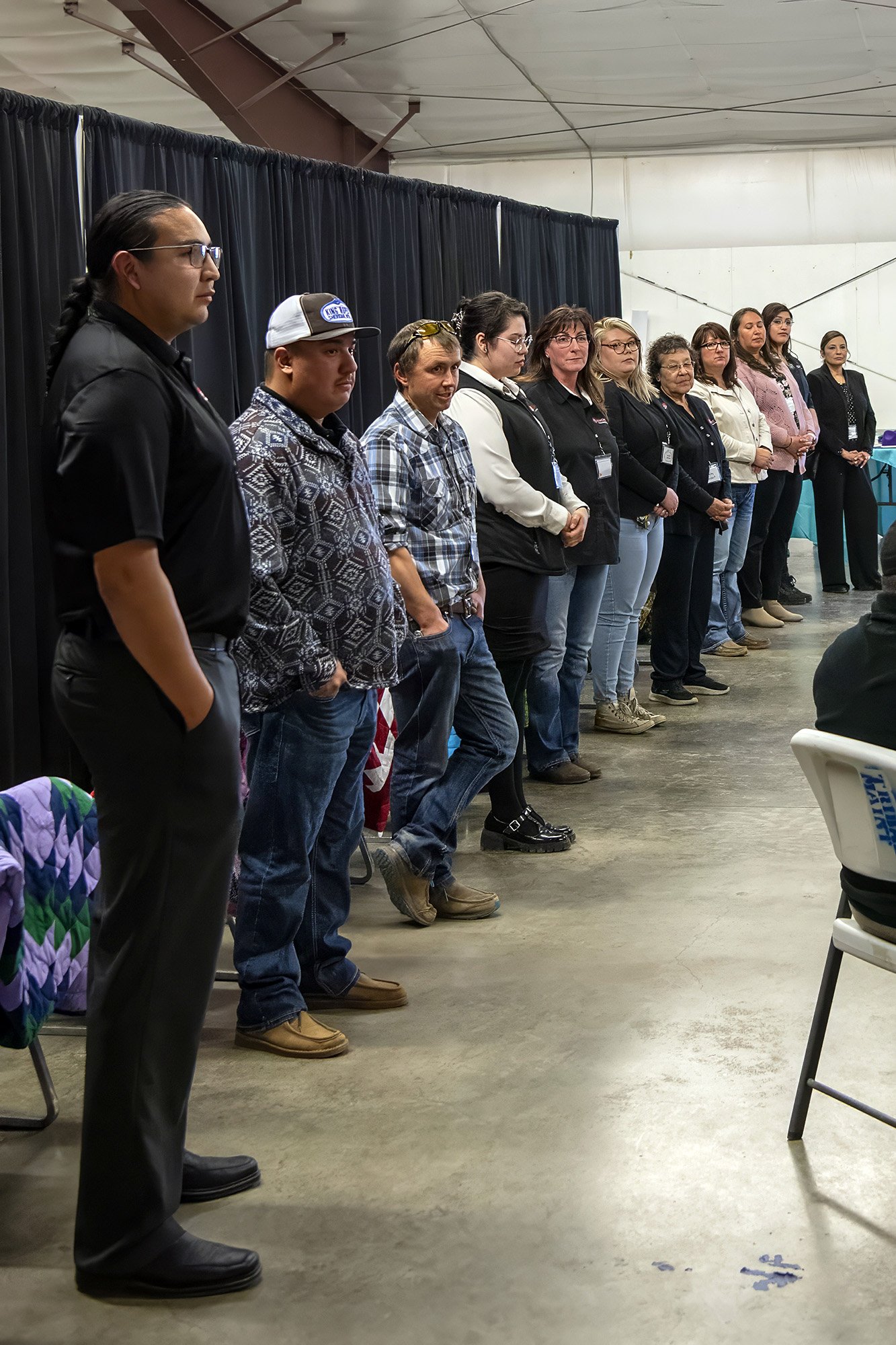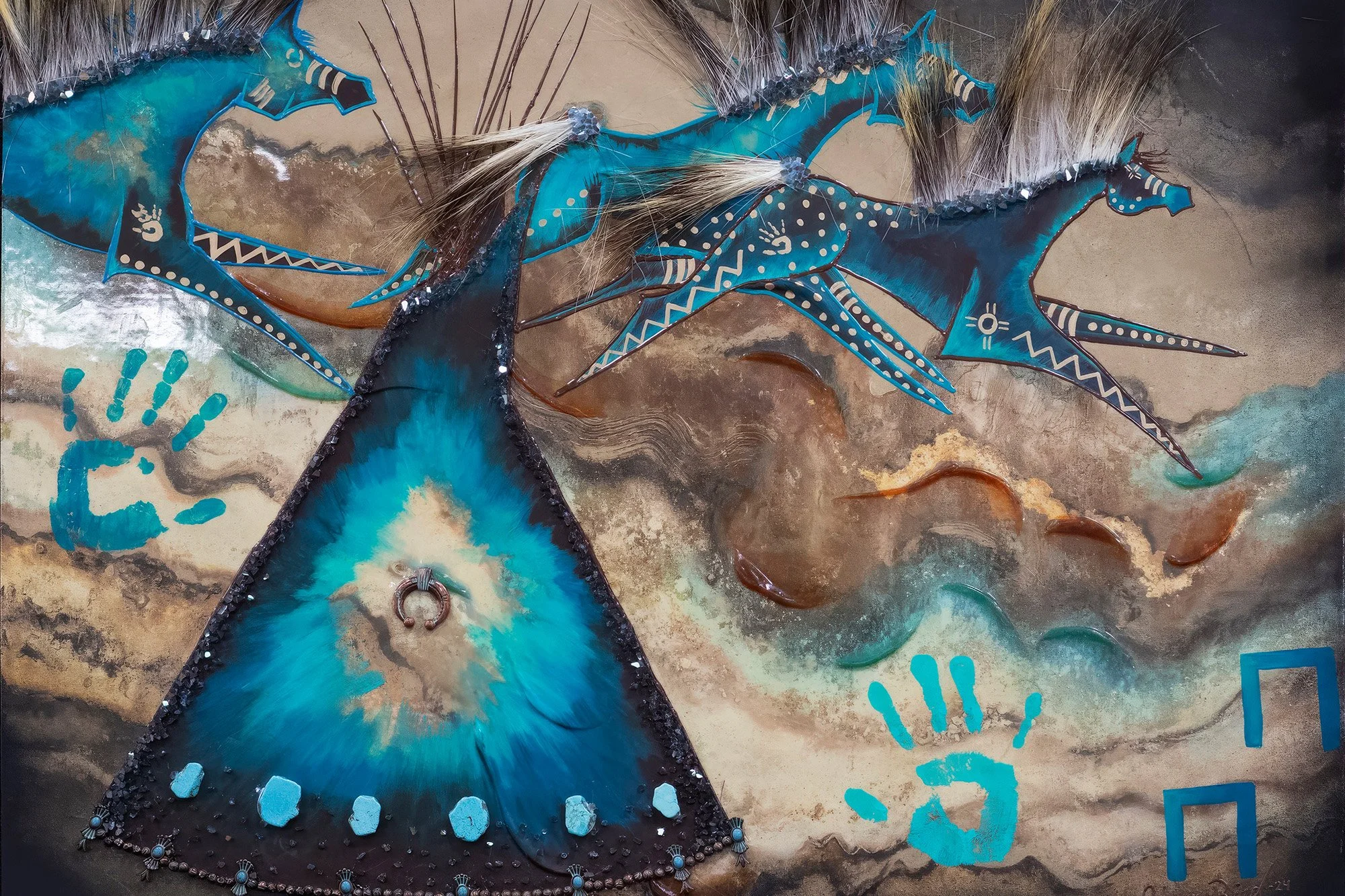
From access to outcomes: A decade of Native-led finance
Partner profile
NACDC Financial Services is a Native community financial development financial institution (CDFI) on the Blackfeet Reservation serving all tribal members in the state of Montana. Their mission is to remove the barriers that exist in Indian Country that prohibit the flow of capital and credit. Through education and lending services, they address critical needs in Native communities and promote sustainable economic development.
Creating generational wealth in Native communities
Native communities have been excluded from financial services for generations. Through the persistent redlining of minority communities and prohibitive tribal land-use rights, Native Americans must overcome tremendous barriers to access capital. There are limited mortgage options, widespread predatory lending, and a lack of culturally relevant financial education for tribal members, so Native community development financial institutions like NACDC work tirelessly to bridge the gap. They’re helping turn generations of financial exclusion into opportunity across Indian Country.
NACDC’s services and programs are focused on building long-term stability for Native homeowners, business owners, artists, and entrepreneurs across Montana. In 2024, NACDC financed 512 loans totaling $4.3 million, serving predominantly Blackfeet community members (80%) and other Native borrowers across Montana. Over half of clients were women, and most were steadily employed, reflecting growing participation in local and regional economies. NACDC supported 433 new jobs and helped families gain $4.3 million in home equity. By circulating millions locally, reducing debt burdens, and empowering Native entrepreneurs and youth through training and fair credit, NACDC and other Native CDFIs are creating pathways for wealth, sovereignty, and self-determined community growth.

NACDC staff at the Mountain Plains Regional Native CDFI Coalition gathering in Browning, Montana. Photo courtesy of m.noel photography.

Angie Main, executive director at NACDC, hosts the Celebration of Native Plains Artists in Great Falls, Montana, in March 2025. Photo courtesy of m.noel photography.
Telling an impact story
Since 2014, NACDC has prioritized their annual report as an effective way to communicate their impact. It’s how they tell the story of the organization’s year: what it accomplished, how it made a difference, and why it matters. The report combines data, stories, and financials to demonstrate transparency, celebrate progress, and build trust with funders, partners, and community members. This year NACDC took it a step further and went beyond typical reporting activities. They interpreted the data and results in the areas most critical to CDFIs: homeownership, entrepreneurship, and community wealth. The objective was to provide contextualized analysis that reflects Native CDFIs’ broader economic and social influence.
The ability to do this started long before the production of the annual report, however. NACDC invested in a long-term, in-house impact measurement system built in Salesforce and has been tracking information ranging from demographics to loan details, impact metrics, and counseling and training services for the past 10 years. They also brought their story to life through an annual report video. Research shows that video increases access and connection, and this approach helps NACDC share the deep, lasting impact of Native-led finance, where Native communities define and measure success on their own terms.

Original art by Native Plains artist Sammy Jo Bird featured in NACDC’s annual report. Photo courtesy of Sammy Jo Bird.
A decade of Native-led economic transformation
NACDC began as an effort to fill credit gaps and has grown into a movement for sovereignty. By providing opportunities for access, education, and ownership, NACDC and other Native CDFIs are creating stability, reclamation, and a return to the land. In 2024, NACDC financed 13 home loans totaling $1.9 million, including a mortgage for Brandon Sure Chief. Sure Chief used NACDC financing to purchase his late grandmother’s home, keeping it in the family after generations of housing insecurity. Between 2019 and 2024, Montana home values rose 72%, resulting in an estimated $4.3 million in collective equity gains for NACDC homeowners. If appreciation continues at this rate, that wealth could grow to $28 million by 2034, or nearly $289,000 per household. This equity creates a foundation for intergenerational wealth transfer where parents’ homeownership directly increases the likelihood that their children will own homes too.
Across Indian Country, rising entrepreneurship reflects the creativity and persistence of Native people. NACDC’s 2024 business portfolio — 10 small business loans, 2 microbusiness loans, 1 artist loan, and 6 agricultural loans — supported ventures that create jobs, preserve culture, and keep dollars circulating locally. The success stories behind these numbers illustrate how lending builds ongoing resilience and innovation. Ronda Mountain Chief, owner of Mountain Chief Cab Company, turned her small driving service into a thriving business serving hikers in Glacier National Park. With NACDC’s partnership, she expanded her fleet and now serves as both a business leader and cultural ambassador for the Blackfeet Nation. Similarly, Nick Crawford, founder of Omie’s Pizza, transformed a family recipe into a growing restaurant with NACDC’s financing and guidance.

Sue and Gary Raccine, owners of Big Sky Cafe in Cut Bank, Montana, and clients of NACDC, talk with Angie Main and Patty Gobert, loan administrator. Photo courtesy of NACDC.

Angie Main is gifted a star quilt for hosting the Mountain Plains Regional Native CDFI Coalition gathering. Photo courtesy of NACDC.
In all, NACDC’s long-term business lending has created 289 new jobs and retained 347 others over five years. Factoring in economic multipliers and the ripple effect of spending, that impact grows to over 950 jobs created and retained, and $15.4 million in per capita income generated. NACDC-supported businesses have also produced roughly $14 million in revenue, which translates into an estimated $21 million in broader local economic activity from individual income and reinvested business revenue.
Importantly, NACDC combines their banking services and lending products with educational workshops, counseling, and technical assistance. This helps community members build a strong foundation for creating budgets, running businesses, and planning for the future. Culturally relevant support like trauma-informed coaching, credit builder loans, and financial literacy classes are helping clients heal from generations of financial exclusion. Joleen Weatherwax, a participant who used NACDC support to buy a vehicle and establish savings, described learning to “be more aware of my credit score and my checking account,” a shift that increased her financial stability and sense of self-determination. Collectively, rising credit scores and new savings accounts are evidence of restored confidence in Native financial capability and leadership.
Lastly, NACDC is creating resistance to predatory lending and minimizing the community’s vulnerability to fraud. NACDC’s affordable rates saved borrowers an estimated $7.3 million in interest compared to commercial lending, and clients using small-dollar loans avoided an additional $8.7 million in payday-lending costs. Together, these savings kept more than $16 million circulating locally. In Native communities across Montana, NACDC is both a lender and a community wealth builder.

Shannon Bear Medicine, now NACDC’s Mini-Bank intern, won an Amazon Kindle after his name was drawn in a monthly deposit drawing in fourth grade.

Today, Shannon Bear Medicine teaches a Mini-Bank program participant how to complete a bank deposit form.

Through homeownership, entrepreneurship, credit building, and youth education, NACDC is nurturing lasting community wealth. Each loan and partnership represents an investment in people and their futures. As NACDC enters its next decade, it continues to show how Native-led finance can restore balance, create opportunity, and keep prosperity rooted in the land and culture it serves.
Sweet Grass project team & services
-

Andrea Mader
Principal & Strategy Director
Project supervisor, secondary data modeling, review, and report writing
-

Mary Sienko
Implementation Director
Data collection, data analysis, client outreach, and content organization
-

Nat Bauer
Graphic Designer
Graphic and layout design, creative direction, data visualization
-

Research
We actively engage in collaborative partnerships to gather stories and insights that lead to strategic decision-making and systems change.
-

Implementation
We help mission-driven organizations showcase their impact, streamline operations, and grow with confidence.
-

Design
We use strategic visuals and messaging to demonstrate each organization's distinct personality and values.
Project reports & publications
From Access to Outcomes: A Decade of Native-Led Finance
NACDC’s 2024 annual report featuring art from Native Plains artists
REPORT
Generational Wealth Building: A Decade of Native-Led Finance
Key results and impacts from NACDC’s 2024 year in review
VIDEO


